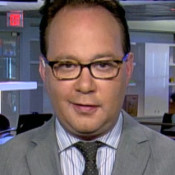Ukraine, rising prices, fears of a global recession, the ongoing pandemic and signs that governments aren’t doing enough to fight global warming, made for quite the gathering of political and business leaders over the past week in Davos, Switzerland.
Inflation has undermined consumer confidence and shaken the world’s financial markets, prompting central banks to raise interest rates.
And food shortages, brought on by the Ukraine conflict, have led to what the UN calls “a global food security crisis.”
Joining the discussion:
- Gilson Schwartz is an economics professor at the University of São Paulo.
- Victor Gao is a chair professor at Soochow University.
- Anton Fedyashin is a Russian affairs analyst and history professor at American University.
- Anthony Chan served as a managing director and chief economist at JP Morgan Chase.
The story of Davos 2022 in a nutshell: https://t.co/hp91Yx4MLl #wef22
— World Economic Forum (@wef) May 26, 2022
Climate activists on the sidelines of the World Economic Forum in Davos, Switzerland, are demanding world leaders act urgently on the climate — and on Russia’s invasion of Ukraine. https://t.co/wSmVddj8Bz
— Democracy Now! (@democracynow) May 26, 2022
In an appeal to representatives from more than 150 countries, @SadhguruJV spoke about critical need to regenerate soil health to make it remunerative for farmers to continue to farm their lands in the interest of food security. #SaveSoil @firstpost https://t.co/fMPukFuSS6
— Conscious Planet #SaveSoil (@cpsavesoil) May 26, 2022
 CGTN America
CGTN America
